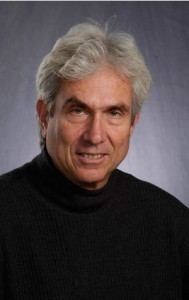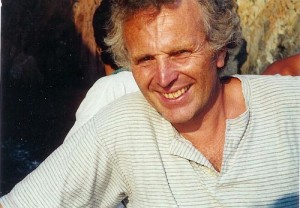Prof. Michael Karin and Prof. Alexander Polyakov – Winners of 2010 Harvey Prize
Prof. Michael Karin and Prof. Alexander Polyakov are the winners of the Technion’s 2010 Harvey Prize.
Prof. Karin, from the University of California, San Diego, will receive the prize in the field of human health. He discovered the strong link between obesity, inflammation and cancer. The judges decided to award the prize to Prof. Karin for “his pioneering contribution that led to deciphering the molecular mechanism through which mammalian cells react to cytokines which cause inflammation, to adverse environmental conditions and also to various pathogens. His research laid the foundations for our understanding of the control mechanisms of transcription factor activities influenced by external stimulations, especially the transcription factors of the AP-1 family and NF-B. These discoveries led to the identification of new target protein cells that have recently been used to develop new medications for preventing and treating various malignant tumors.”
Prof. Polyakov, from Princeton University, will receive the prize in the field of science and technology. “He developed revolutionary theories that shaped our contemporary understanding of elementary particles in nature. In addition, he significantly contributed to condensed matter physics, statistical mechanics and mathematics. Among the ideas credited to him are topological structures (such as magnetic monopoles) in gauge field theories, which are important in understanding the confinement of quarks in the nucleus.
Polyakov also contributed to the foundations of string theory, the unification of quantum mechanics and gravity, and to the idea of duality between string theory and gauge field theory.”
The Technion’s prestigious Harvey Prize foresaw the winning of the Nobel Prize for two of the latest Nobel laureates – Elizabeth Blackburn (Medicine) and Ada Yonath of the Weizmann Institute of Science (Chemistry). To date, 13 Harvey Prize winners have gone on to win the Nobel Prize.
The Harvey Prize was first awarded in 1972 from a fund established by the late Leo M. Harvey of Los Angeles in order to recognize those who have made great contributions to advancing humanity in science and technology and in human health, as well as advancing peace in the Middle East. Every year, prizes totaling $75,000 per winner are awarded from the fund’s income.
Among the winners of the prestigious Harvey Prize are scientists from the US, Great Britain, Russia, Sweden, France and Israel. These include Nobel Prize laureate Mikhail Gorbachev, former leader of the USSR, who was awarded the prize for his activities aimed at reducing regional tensions; Prof. Bert Sakmann who won the Nobel Prize in Medicine; Prof. Pierre-Gilles de Gennes who won the Nobel Prize in Physics; Prof. Edward Teller for his discoveries in solid state physics, atomic physics and nuclear physics; and Prof. William J. Kolff for his invention of the artificial kidney.
Proposals for candidates for the Harvey Prize are received from leading scientists and personalities in Israel and the world. The prize laureates are chosen by the Harvey Prize committee in a stringent process at the Technion.
Below: Prof. Michael Karin (left) and Prof. Alexander Polyakov (right).




